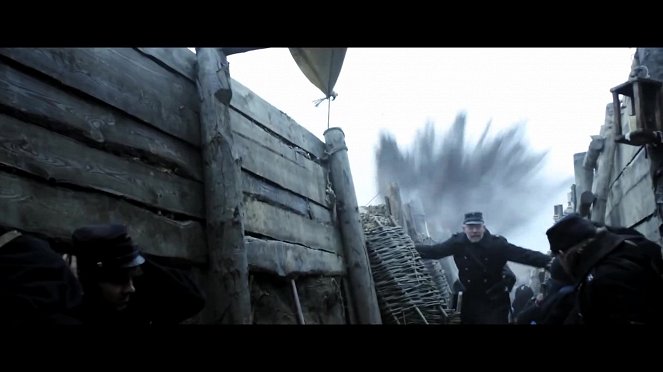Director:
Ole BornedalGuión:
Ole BornedalCámara:
Dan LaustsenMúsica:
Marco BeltramiReparto:
Pilou Asbæk, Sarah-Sofie Boussnina, Marie Tourell Søderberg, Jakob Oftebro, Nicolas Bro, Søren Pilmark, Eva Podzimková, Esben Dalgaard, Søren Malling (más)Streaming (1)
Episodios(8)
Sinopsis(1)
En 2014, una estudiante llamada Claudia (Sarah-Sofie Boussnina) entra a trabajar en el caserón de un anciano. Cuando encuentra allí el antiguo diario personal de una joven llamada Inge (Marie Tourell Søderberg), Claudia se sumerge de lleno en la historia de su país a través del extraordinario romance entre dos hermanos campesinos llamados Peter (Jens Sætter-Lassen) y Laust (Jakob Oftebro) y su mejor amiga, la propia Inge, de la que ambos estaban enamorados desde la infancia. Un idilio interrumpido al estallar en 1864 la llamada Guerra de los Ducados entre Dinamarca y Prusia. Cuando Peter y Laust deciden dejar atrás su apacible vida en el campo para alistarse en el ejército, se ven involucrados en una de las batallas más sangrientas de la historia de Dinamarca: la masacre de Dybbol, que marcó al pueblo danés para siempre. (Filmin)
(más)Reseña del usuario Necrotongue de esta serie (7)
1864 (2014)
A great and intriguing miniseries, which opens in 1851 and closes in 1864 following a peculiar love story against the backdrop of the Second Schleswig War. The historical storyline is complemented by the contemporary one. The two parts of the story fit quite well together, clearly showing how too much nationalist fervor can make a small nation dangerous not only to others but especially to itself. I was satisfied with the whole series, I was far from bored. The only thing that disappointed me was the sloppy ending.
()
Episode 1 (2014) (E01)
It can be seen that the Danes think differently than Americans when it comes to making movies and series, and Peter Jackson, instead of constant killing orgies, offers the first episode a view of everyday life on the eve of war, on which ridiculously enthusiastic politicians work intensively. Nordic film and series production works for me.
()
Episode 3 (2014) (E03)
So in the third episode, the preparations for war are in full swing, and von Bismarck and von Moltke have the situation firmly under control. Even though the outcome of the clash is already clear, the series is still becoming more interesting. I enjoy how the Danes manage to incorporate a romantic theme into the series without sacrificing the atmosphere. Moreover, thanks to this spectacle, I have come to know a new kind of relationship between three individuals - the Danish trio.
()
Episode 4 (2014) (E04)
The plot of the fourth episode is faster in all directions and I would give it a full rating if it weren't for the fact that the first open clash was mostly just retold. I have no idea whether it was an artistic intention, but I am more inclined to believe that it was mainly motivated by saving money. An important lesson not only from this episode is that no matter what year it is, you can always rely on politicians to sacrifice, sink, and exploit you. How lovely.
()
Episode 5 (2014) (E05)
This episode disappoints me. Strange monologues are incorporated into the story, which feels like long-distance communication. The battles take place off-screen and instead the camera focuses on a painting capturing the battle scenery, accompanied by the sound designer playing battle chaos - really cool. Hopefully, the situation improves in the next episodes.
()
Episode 7 (2014) (E07)
In my opinion, so far the best episode, the plot is becoming more and more dramatic, politicians are absolutely incapable of understanding reality, and an above-average dose of pathos is compensated by the fact that money has finally been found for extras, so the battle is finally taking place on the screen and not only in the viewer's imagination.
()
Episode 8 (2014) (E08)
The conclusion of the miniseries seemed very ambiguous to me, the pathos from the previous episode remained, the plot began to be strangely concise, and the actions of the individual characters seemed unconvincing. After the end credits, I had to ponder for a while why the Danes decided to cut the series so strangely, but I still couldn't figure it out.
()

